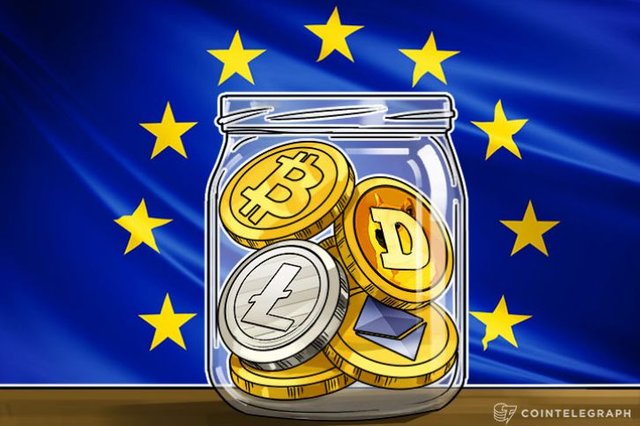
The European Commission has submitted their plans to create a central database of digital currency users. The EU quotes the prevention of terrorist financing and money laundering for the reason behind it.The Commission stated that virtual currency transfers, including Bitcoin, are not monitored or observed by public authorities within the EU and thus, a regulatory framework for digital currency platforms must be established.“For that purpose, obliged entities need to collect, process and record personal data, and sometimes to share such data with public authorities (such as FIUs) or with private entities within the same group,” a section of the proposal reads.In relation to providing a regulatory framework for digital currency startups—which most likely will require all EU digital currency startups to collect private and sensitive information of their users—the EU Commission stated in Article 65 of 4AMLD that a regularly maintained central database of registered virtual currency users must be established by June 2019.The Commission proposed:
“Appropriate proposals, including, where appropriate, with respect to virtual currencies, empowerments to set up and maintain a central database registering users’ identities and wallet addresses accessible to FIUs, as well as self-declaration forms for the use of virtual currency users.”
Core Problems
The EU Commission’s ambitious plan to create a centralized database of decentralized digital currency users presents two core problems: violation of personal data and their disturbingly poor quality of cyber security.European government agencies, law enforcement, and non-profit organizations have been targeted by thousands of public data attacks since 2004. Amongst those attacks, the number of publicly recorded data breaches is estimated at 229, exposing the vulnerable and outdated IT systems of Europe’s government-backed agencies.The European Union and its cyber security units, which have been long involved with the darknet and Bitcoin transactions are proposing to create a central database of personal, private, and sensitive financial records of millions of digital currency users with the illogical case that digital currency funds most of the ‘terrorist’ and illegal purchases in the world today.Perhaps it is the fault of mainstream media, but cash has been the preferred method of purchasing illegal items and terrorism financing, for one simple reason: cash is completely anonymous, while digital currencies aren’t.Virtual currencies which are based on public or shared ledgers are built to be transparent and decentralized. Thus, anyone on the network can access the data of financial transactions. The EUROPOL used this disadvantage of the Bitcoin network to track down Silk Road traders earlier in 2016.If the basis of the EU Commission’s argument is to centralize virtual currencies to stop the illegal purchase of drugs and terrorist financing, it is more sensible for the Commission to execute the same plan on cash users, since there are more cases of drug purchases and money laundering with cash.
One more step towards a surveillance continent...
Downvoting a post can decrease pending rewards and make it less visible. Common reasons:
Submit
There will be other ways to anonymity ...
The world is evolving, technology too.
Downvoting a post can decrease pending rewards and make it less visible. Common reasons:
Submit
To many anoncoins now nearly impossible. But I would expect them to attempt to regain there controls.
Downvoting a post can decrease pending rewards and make it less visible. Common reasons:
Submit
Cheetah is on the prowl, it looks like this post is PLG: http://www.bitcoinisle.com/2016/07/25/eu-to-register-digital-currency-users-record-bitcoin-transactions
Downvoting a post can decrease pending rewards and make it less visible. Common reasons:
Submit